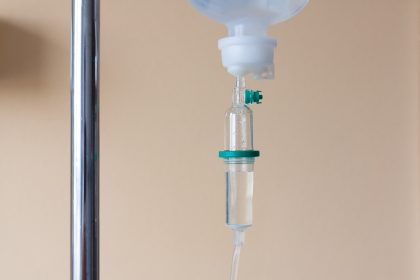Tips for Staying Safe and Healthy in the Heat

WASHINGTON — Summer has just started and we’ve already had a heat wave with record-breaking temperatures across the United States. With climate change, the heat will continue to rise every year.
High heat comes with greater health risks. Here, we’ll explain what happens to your body in the heat, the potential danger of heat stress, which populations are most vulnerable and tips to protect yourself for a safe summer.
Hotter Heat Waves
According to NASA, summer 2023 was the hottest summer on Earth since 1880, when global records began.
Before summer 2024 officially started, heat waves had already spread across the United States, breaking records for the highest temperatures in June. The Centers for Disease Control and Prevention defines a heat wave as a period of time when excess heat builds up over several hot days and nights. Heat waves may continue increasing in length, frequency and intensity.
According to the CDC, emergency room visits for heat-related illness spiked during June in the Northeast and the Midwest. These regions may not be as accustomed to the high heat as the South.
What Happens to Your Body in Extreme Heat
In extreme weather, your body undergoes thermoregulation to return your core temperature to normal by balancing heat generation with heat loss. When you’re cold, your body tries to generate heat. When you’re hot, it tries to reduce heat.
In the case of extreme heat or heat stress, two processes occur. First, blood flow increases to transfer excess heat from your muscles to your skin and out through your skin by sweating.
After this heat loss, nerve cells in your skin send signals to your brain to feel cooler. As sweat evaporates, your body should cool down. Thermoregulation can be affected by dehydration, other chemical processes and medical conditions.
These processes place a high demand on your heart and lungs to pump more blood and oxygen faster. People with cardiovascular diseases are at a higher risk of heat-related illness and death because their systems may get overwhelmed by the increased CV demand.
Health Risks of Extreme Heat
Thermoregulation is a normal response to changing temperature. When the heat is too extreme, your body’s thermoregulation ability can be impaired, leading to overheating, illness, heat stroke and death. Heat is the leading weather-related cause of death.
Excess heat can also exacerbate mental health issues and harm pregnancies. When your core body temperature reaches 102.2 to 104 F, blood flow increases rapidly, and you can’t thermoregulate. Organ damage can occur to your heart, lungs, kidneys, liver, intestines and brain.
Here’s how it works:
- Dehydration: Excessive sweating can lead to dehydration, which lowers blood volume and increases strain on the heart and kidneys.
- Cardiovascular Risk: The increased demand on your heart for more blood flow may overly stress your CV system, especially in people with CV disease and older adults.
- Respiratory Risk: The increased demand on your lungs may cause hyperventilation, illness, or death, particularly for people with respiratory illnesses and older adults.
- Heat Exhaustion: Heat exhaustion may occur after your core temperature reaches 104 F and dehydration from loss of water and salt. Signs of heat exhaustion include headache, nausea, dizziness, weakness, irritability, excessive thirst and sweating, and reduced urination.
- Heat Stroke: Heat stroke is a medical emergency that can occur when your core temperature quickly reaches 106 F or higher, sweating stops, organ damage occurs, and hospitalization may be necessary. It can lead to permanent damage or death. Signs of heat stroke include confusion, slurred speech, loss of consciousness, dry skin or excess sweating and seizures.
- Heat-Related Deaths: Excessive heat can cause heat exhaustion, heat stroke, dehydration and kidney failure. It can exacerbate CV, respiratory, and cerebrovascular diseases. All of these factors can lead to heat-related deaths.
Which Groups Are At High Risk of Heat Stress
Extreme heat can be dangerous for everyone, but certain groups may be at a higher risk of heat-related illnesses.
- Older Adults.
- Young Children.
- Pregnant Women.
- Outdoor Workers: In addition to overheating, heat stress can reduce cognitive performance and increase the risk of injury for outdoor workers.
- Outdoor Athletes: People exercising or playing sports outdoors may have a higher risk of heat-related illness and sports injuries.
- People With Medical Conditions: Research shows that CV illness is the leading cause of death during heat waves. People with any type of heart, lung or kidney disease, diabetes and other chronic illnesses are at a higher risk.
- People Taking Certain Medications: Certain medications, including antidepressants, antihypertensives, antiepileptics, anticholinergics, muscle relaxants and opioids, may affect thermoregulation.
- People Without Air Conditioning or Homes: People without access to air conditioning or homes may be unable to protect themselves from the heat.
- People Using Alcohol or Substances: Drinking alcohol or using cocaine can affect thermoregulation.
Heat Protection Health Tips
Here’s how to stay healthy in the heat.
- Stay Hydrated: Drink plenty of water, with or without electrolytes, to replace fluids lost from sweating.
- Stay Indoors: Stay indoors when possible, use air conditioning, fans and close the blinds. People without access to these options can seek public cooling centers.
- Use Water: Take cool showers or baths, or use cold washcloths on your face.
- Avoid the Hottest Part of the Day: If possible, stay inside during the hottest part of the day, generally 10 a.m. to 4 p.m. If you’re outside, stay in the shade.
- Use Sun Protection and Wear Loose Clothing.
- Check on Vulnerable Neighbors: Check on people you know who may fall into high-risk categories.
Stay Cool
While you can’t stop the coming heat waves this summer, you can take steps to protect yourselves and those around you from heat stress and heat-related illnesses. Our bodies can naturally cool down through thermoregulation, but some factors may prevent this process.
Our website content, services and products are for informational purposes only. The Well News does not provide medical advice, diagnosis or treatment. If you have medical concerns or questions, discuss with your health care professional.
You can reach us at [email protected] and follow us on Facebook and X (formerly known as Twitter)
























